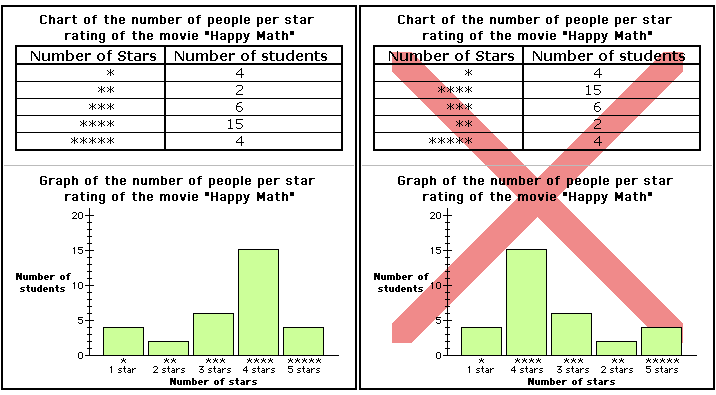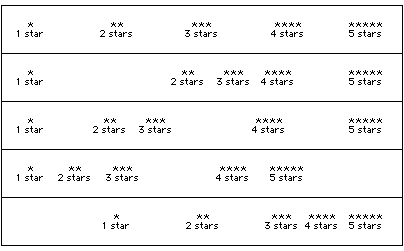One example of an ordinal scale could be "movie ratings". For example, students in a class could rate a movie on the scale below.

A sample data set is given below left. Notice in the graph that the horizontal direction "left" implies negative or bad responses to the movie, while the horizontal direction "right" implies positive or good responses to the movie. In this type of scale, the order of classes cannot be changed, (as illustrated in the example graph below right).

Notice that the difference between a movie with a five star rating and a movie with a four star rating can't be quantified, and may not be the same as the difference between a movie with a four star rating and a movie with a three star rating. Only the ordering of the classes can't be changed. See the illustration below.
